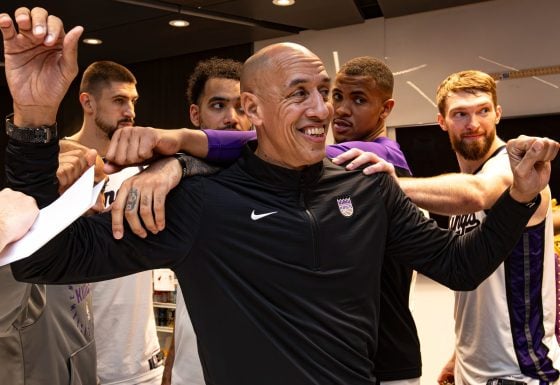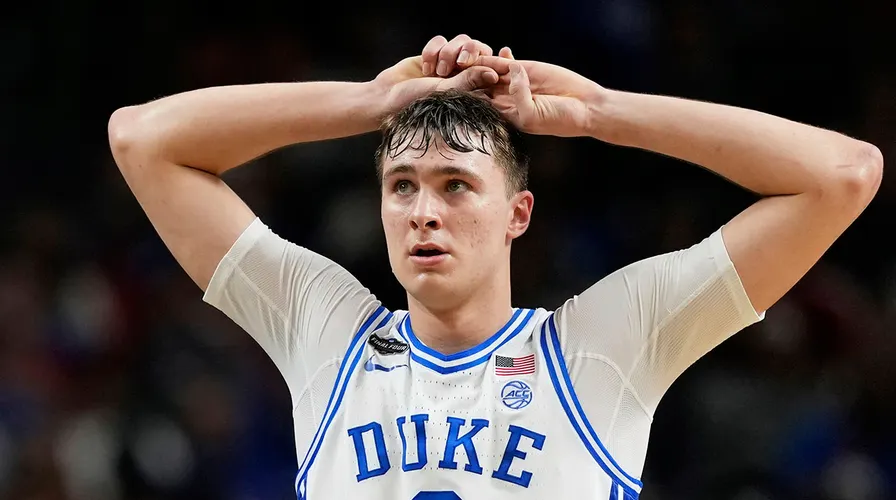It’s undeniable that Payton Pritchard has been cooking with something a little stronger than canola oil. His minutes and efficiency are both up, his scoring is way up, and the vibes are so up they’re blowing a hole through the ceiling and achieving escape velocity. Is all of this real, and if it is, what should we do with it?
Saturday night’s clash with the Charlotte Hornets gave us some more data to work with. He dropped 22 points in 29 minutes, got hot in the first half and cooled off in the second. It’s his fifth 15+ point performance of the season, and by lots of counting stats, he should be the favorite to win Sixth Man of the Year. Betting markets sure think so.
But has Pritchard actually become a dynamic off-the-bench spark plug who could bail the Celtics out of sketchy situations in big games? After basically playing special teams in the NBA Finals, has he done enough for a consistent role come playoff time? It may not be such a simple “yes.”
While it’s true that Pritchard is scoring a lot, he’s still a one-dimensional offensive player. He’s feisty off the ball, but once he gets it, he’s still a pure three-point specialist that has gotten criminally hot four times in seven games. Out of 78 total shots this season, 66 of them have threes. That’s not a particularly interesting shot diet, but it’s almost certainly what the Celtics want him doing in Joe Mazzulla’s system.
And he’s knocking them down. Of all NBA players with at least 50 three-point attempts this season, he’s first in shooting percentage at 44.9%. Any team would kill for that number off the bench, especially at decent volume. With the Celtics asking other teams to guard four different good-to-great creators, rolling out a sniper to compliment them is the maraschino cherry on the award-winning ice cream sundae from the Del Frisco’s dessert menu.
The results have been there, but Pritchard’s problem will be reproducing them when the Celtics actually need it. He hasn’t achieved this glorious 45% through a bunch of solid nights, but through being either scalding hot or frigid from beyond the arc, with no in-between. Here are his first seven splits in chronological order:
11.1%
50.0%
71.4%
66.7%
36.4%
0.0%
50.0%
Shooting is a fickle art. With how many of his shots are threes, Pritchard will be more susceptible to the swings of variance than most other players in his tier. There’s a reason you live by the three and die by the three. There is no either/or in that business.
Fundamentally, Pritchard lacks the additive skills needed to stay on the court if his shot isn’t falling for any one night. He’s not a detrimental or disinterested defender, but lacks the physical tools to hang with most elite shot creators who will search and destroy Pritchard over and over again.
Many iterations of this Celtics team have needed Pritchard’s shooting on paper, but have been unable to keep him out there in the real world. With pick-and-roll destroyers like Jimmy Butler and Donovan Mitchell lurking in the Eastern Conference and plenty of assassins in the West, Pritchard’s limitations can only be masked by a nuclear offensive outburst. Would the Celtics bet on that in a playoff series?
I’m not sure they would. With everyone healthy, Sam Hauser will likely remain the Celtics’ seventh man in most matchups, with a defensive ability Pritchard simply lacks. If the Celtics lose someone to injury, Pritchard is a good “break glass in case of emergency” creator who can make something happen off the dribble, his main leg up on Hauser. But when the off-the-dribble responsibilities are covered, Pritchard’s role may be smaller than some will want.
Pritchard has shown an ability to improve year over year, as since falling out of the rotation in 2022 he has carved out more minutes, shots and points for himself while securing a new contract. That’s no small feat, and the Celtics will continue to sculpt ways for him to make an impact; half-court shots are only the beginning.
Depending on how optimistic you are, this is either the next step in Pritchard’s development as an elite scoring sixth man or a glorious aberration fueled by unsustainable three-point luck. But wondering if Pritchard is going to be a functional sixth man in the playoffs is a good problem to have, and more indicative of the Celtics’ embarrassment of riches than something Boston should actually lose sleep over.
If he can play, great. If he doesn’t have it, they’ll be fine. The challenge will be figuring out which game is which, and the Celtics have six months to learn how. Sure, Pritchard’s start to the season might be a mirage, but one you can take information from and use it to get better. Not a bad deal. Not bad at all.






